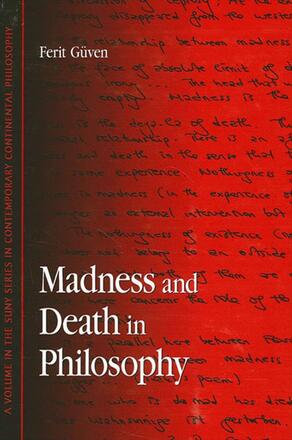
Madness and Death in Philosophy
Alternative formats available from:
Demonstrates the significance of the concepts of madness and death for the history of philosophy.
Description
Ferit Güven illuminates the historically constitutive roles of madness and death in philosophy by examining them in the light of contemporary discussions of the intersection of power and knowledge and ethical relations with the other. Historically, as Güven shows, philosophical treatments of madness and death have limited or subdued their disruptive quality. Madness and death are linked to the question of how to conceptualize the unthinkable, but Güven illustrates how this conceptualization results in a reduction to positivity of the very radical negativity these moments represent. Tracing this problematic through Plato, Hegel, Heidegger, and, finally, in the debate on madness between Foucault and Derrida, Güven gestures toward a nonreducible, disruptive form of negativity, articulated in Heidegger's critique of Hegel and Foucault's engagement with Derrida, that might allow for the preservation of real otherness and open the possibility of a true ethics of difference.
Ferit Güven is Assistant Professor of Philosophy at Earlham College.